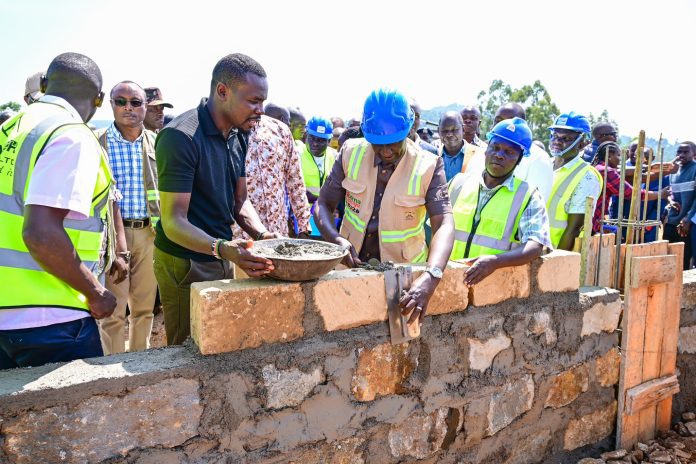The government of President William Ruto has hatched a new plot that will partially diverted the controversial housing tax from the construction of “affordable” houses.
In the new plan, the government is plotting to change the law to allow the tax to be used to fund construction of markets and nursery schools, projects that are currently the responsibility of county governments.
This is the latest twist in the housing tax saga that has so far failed to deliver despite claims of hundreds of thousands of houses being under construction.
According to draft regulations that are under the Office of the Attorney General Dorcas Oduor, the government wans to use the fund to finance the construction of markets, health centres, nursery schools, and primary and secondary classrooms.
The draft further proposes that the fund be used to construct fire stations, social halls, and waste management units. It will also be used to construct parking spaces, road access. Funds from this tax will also be used to install street lighting, high mast lighting, and internet connectivity.
State “invests” Sh. 46 billion collected from affordable housing tax in T-bills
According to President Ruto, the fund is already being used to construct markets that have stalled in various parts of the country. Some of these markets were launched as far back as during the late president Mwai Kibaki’s tenure. They are currently under county governments.
“We are not only using that housing levy to construct affordable housing. We are using it to build markets. We now have 260 markets under construction across the country,” he said.
Since the tax was slapped on Kenyans, President Ruto and his government have struggled consistently to justify the purpose of the tax. According to critics, the government was not interested in building houses, but needed the tax to boost its cash flow.
Employed Kenyans cough up 1.5 percent on their gross salary. This is matched by the employers. Self-employed Kenyans on the other hand pay 1.5 percent of their gross income.
The largest amount collected from the tax is currently not being used for the construction of the houses. President Ruto had earlier claimed that his government would build 250,000 houses per year. However, as at February 2025, only about 0.4 per cent of these houses were being built per year.
According to the Affordable Housing Board acting chief executive officer Sheila Waweru, some Sh. 46 billion collected from this tax had been invested in the short term T-Bills as of February 2025.
This amount included reinvestments which was equivalent to 51.8 per cent of the Sh. 88.7 billion that had been collected since August 2023 when the controversial tax came into force.








